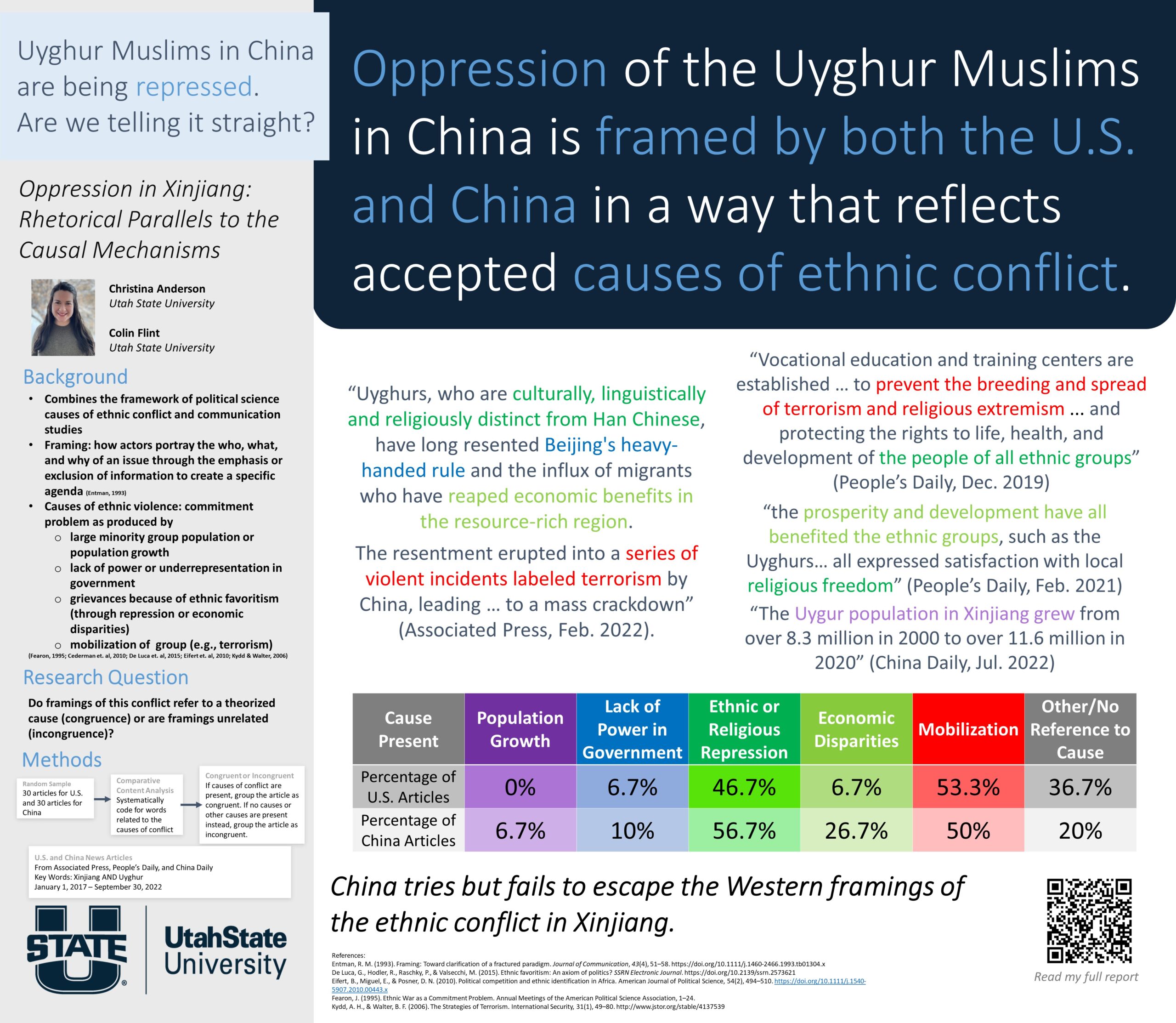Presenter Name: Christina Anderson
Description
This paper focuses on the framings of ethnic conflict compared to expectations of political science explanations of the causes of such conflict. I used the example of Uyghur Muslims and Han Chinese in Xinjiang as narrated by Chinese and U.S. news media. Framings are statements used to portray the who, what, and why of an issue through the emphasis or exclusion of information to create a specific agenda. The theoretical expectation from social science is that ethnic conflict is a result of a commitment problem, which is where the two parties in the conflict cannot credibly guarantee the protection of the other. I performed a comparative content analysis to uncover the framings that both internal and external actors are using, the differences between them, and their congruence with universal expectations from political science analyses of ethnic conflict. Findings of incongruence help us interpret narratives surrounding issues of ethnic conflict and respond to them more effectively through policy as there may be a mismatch between the rhetoric surrounding these issues and what is at the root of the conflict.
University / Institution: Utah State University
Type: Poster
Format: In Person
Presentation #A54
SESSION A (9:00-10:30AM)
Area of Research: Social Sciences
Email: a02274007@usu.edu
Faculty Mentor: Colin Flint

